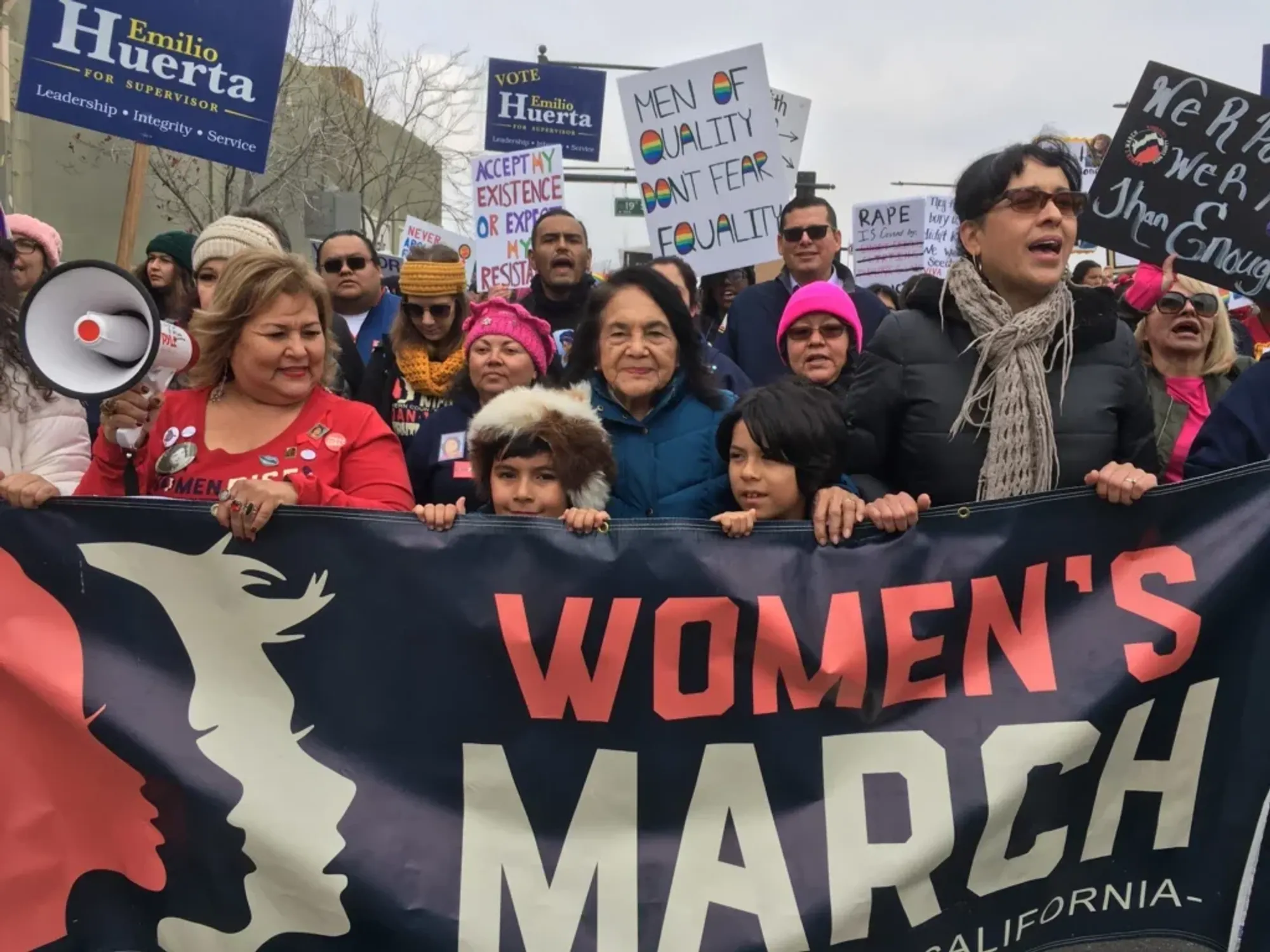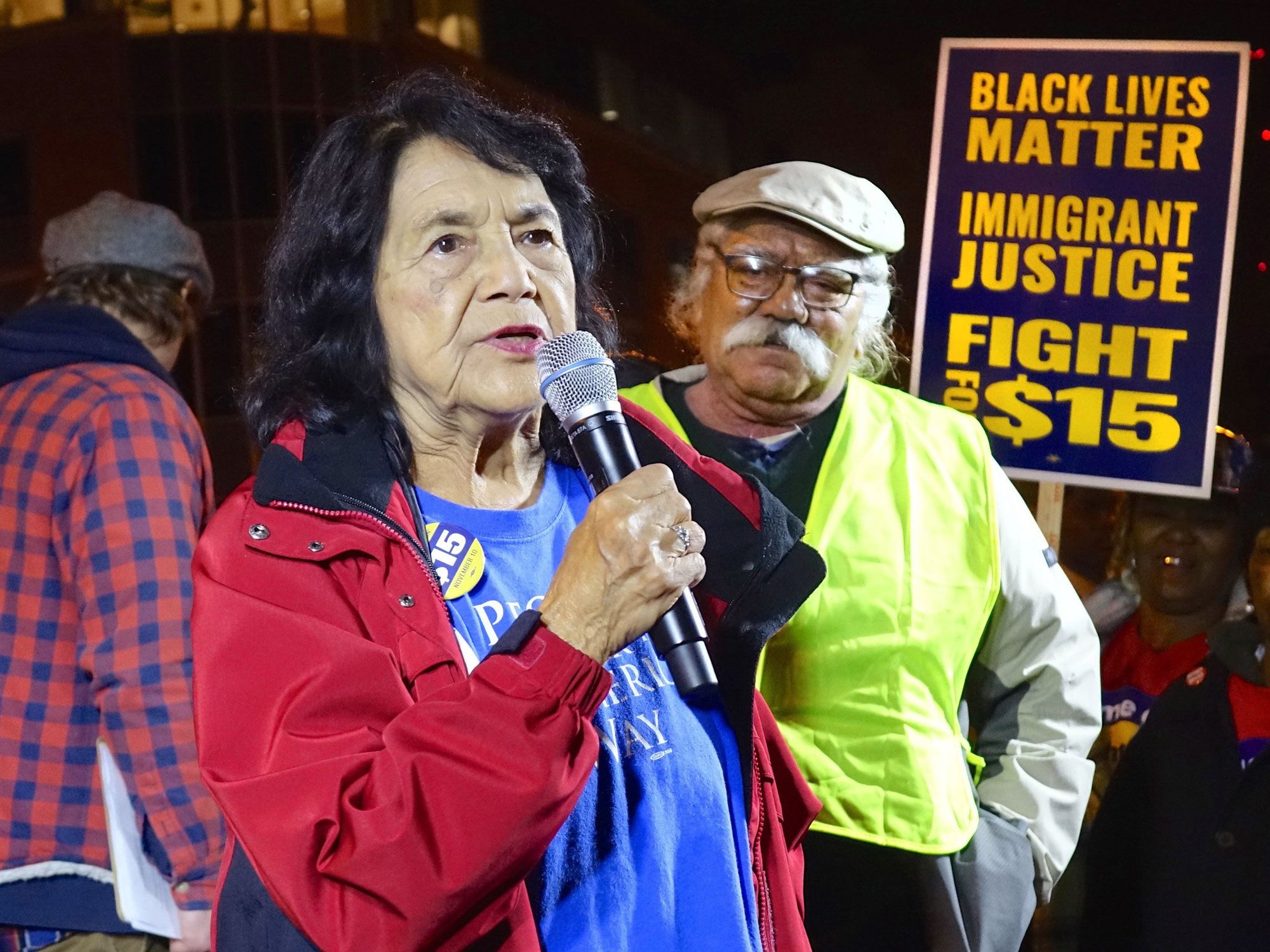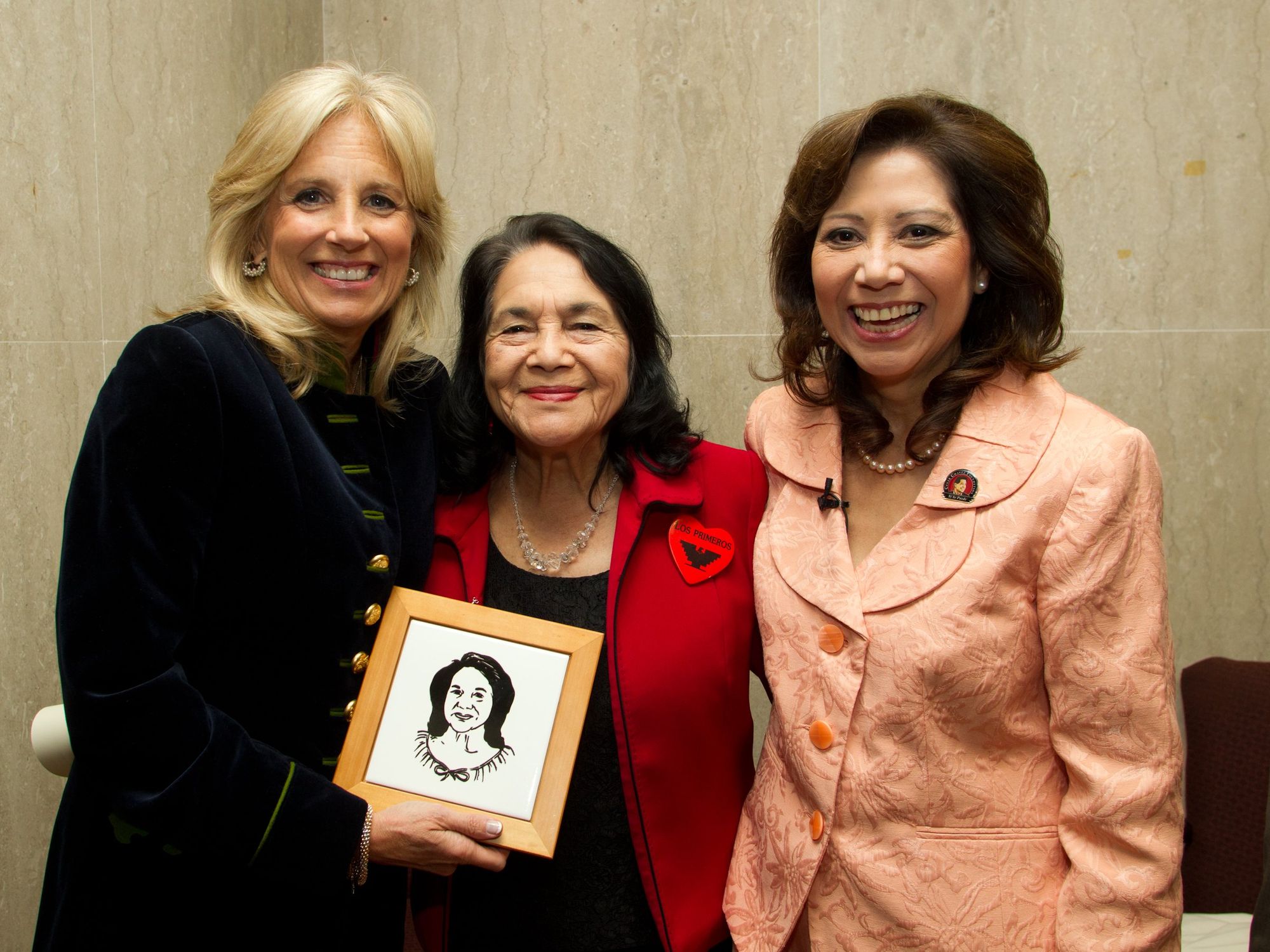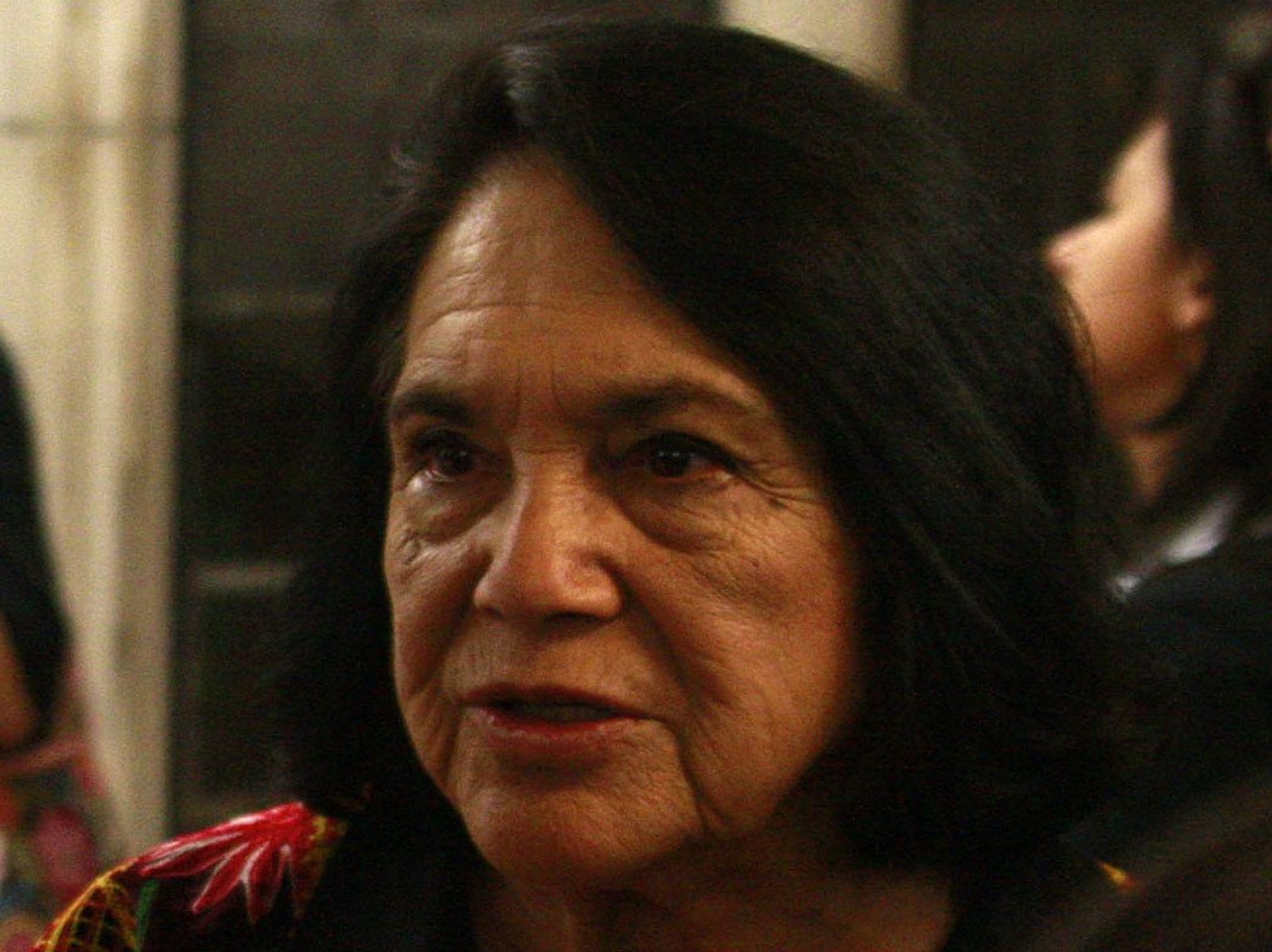
Dolores Huerta is one of the biggest social justice and civil rights icons in the Latino community. From humble beginnings to becoming a trailblazing activist, her career has inspired generations and her work has changed countless lives. At 94 years old, Huerta continues to dedicate her life to advocacy and fighting for the rights of marginalized people. She’s a remarkable woman, so let’s explore 10 things you should know about her influence and legacy!
Dolores Huerta gets her feminist roots from her mother

Photo by Dolores Huerta Foundation (DHF)
Dolores Huerta grew up in Stockton, California, and she inherited her values from both of her parents, who were also activists and civil rights champions. Alicia, Dolores’ mother, shaped her with her fierce independence and compassion. Alicia also had strong feminist ideals and an unwavering sense of social responsibility, which became the foundation of Dolores’ lifelong commitment to gender discrimination and injustice. Dolores certainly took honoring your parents to a whole other level!
She’s a trailblazer for women’s rights

Photo by Dolores Huerta Foundation (DHF)
Dolores was César Chávez's right-hand woman in the farm workers' movement, but she never hesitated to challenge gender discrimination within the movement itself. She collaborated with feminists like Gloria Steinem and helped bring attention to women’s issues. Her integrity made waves and it’s a huge part of how she has managed to accomplish so much in her career.
Dolores was committed to non-violence, with no exceptions

Photo by Susan Ruggles on Wikimedia Commons
As it happens for many advocates, especially female ones, Dolores has been no stranger to physical assaults and violence during her protests. However, her commitment to non-violence as a core part of her advocacy has never wavered. In doing so, she prioritized long-term goals and the safety of everyone involved in the fight. There’s a lot of strength in turning the other cheek when you can mobilize masses, and that’s an incredible show of good character.
She’s a survivor

Photo by Trace Murphy on Flickr
Speaking of falling victim to physical assaults as a social justice warrior, Dolores survived a life-threatening assault at the age of 58 by police officers. This happened while she was protesting against presidential candidate George Bush, and her resilience worked in her favor. The public was outraged by the attack and combined with legal action, this incident led to major reforms in police practices.
Dolores has received 15 honorary doctorates and degrees

Photo by US Department of Labor on Wikimedia Commons
Dolores Huerta has about 15 honorary doctorates and degrees from many different universities across the United States. Including Mills College, the University of the Pacific, the University of Southern California, Yale, and others. All of her honorary doctorates and degrees have been in honor of her social justice work and the change she has helped to create in the country for so many marginalized communities.
She holds the Order of the Aztec Eagle

Photo by Alexeinikolayevichromanov on Wikimedia Commons
Back in 2015, Dolores received the Order of the Aztec Eagle, which is the highest decoration the Mexican government has for foreign nationals. She received this in recognition for her unwavering service to the Mexican community in the U.S. Dolores has helped Latinos in the country fight for equal pay, workplace dignity, and fair employment practices, making a huge difference for immigrants working on farms.
Dolores was awarded the Presidential Medal of Freedom

Photo by LBJ Library on Flickr
The Presidential Medal of Freedom is a civilian award and it’s given to people who have contributed to national interests, world peace, or have had significant public or private achievements. Dolores received this recognition in 2012 from President Barack Obama and it’s not the first award she gets from a U.S. President. Back in 1998, she also received the Eleanor Roosevelt Award for Human Rights from President Bill Clinton.
Her intersectional activism has paved the way for inclusivity

Photo by Eric Guo on Wikimedia Commons
One of the things that Dolores has always understood well is how social struggles are interconnected. As such, she’s one of the fiercest advocates for intersectional activism. She has fought for the rights of marginalized communities at large, not just people of color, but also LGBTQ+ individuals. This commitment to intersectionality has paved the way for greater inclusivity and has inspired solidarity within the social justice movement at a larger scale. Just another example of her positive influence!
Dolores even advocates for environmental justice

Photo by Dolores Huerta Foundation (DHF)
Dolores Huerta’s work is not just focused on labor rights, immigrant rights, and women’s rights, she has also been vocal about environmental justice. One of the issues that she recognizes is how environmental destruction has a disproportional effect on marginalized communities. As such, she has been a huge advocate for safe drinking water, sustainable agriculture, and clean air in often neglected communities.
She has created a legacy of empowerment and hope

Photo by Montclair Film on Wikimedia Commons
At 94 years old, Dolores Huerta continues to inspire activists and make ripples. Her commitment to justice and equality are unmatched and she has built a legacy of empowerment and hope. This legacy will outlive her and inspire generations of activists to come. The fire that she has ignited and consistently stoked throughout her life will burn for generations and be the catalyst for even more change. Her mark on the American socio-political landscape is a fixed point, inspiring millions to continue fighting for a more just society for all.
- 5 Things You Didn't Know About Dolores Huerta ›
- 5 Latinas in U.S History We Bet You Didn’t Know About ›
- Latinas in the Chicano Movement: From Dolores Huerta to Today's Activists ›


 Photo by
Photo by  Photo by
Photo by  Photo by
Photo by  Photo by
Photo by  Photo by
Photo by  Photo by
Photo by  Photo by
Photo by  Photo by
Photo by 

